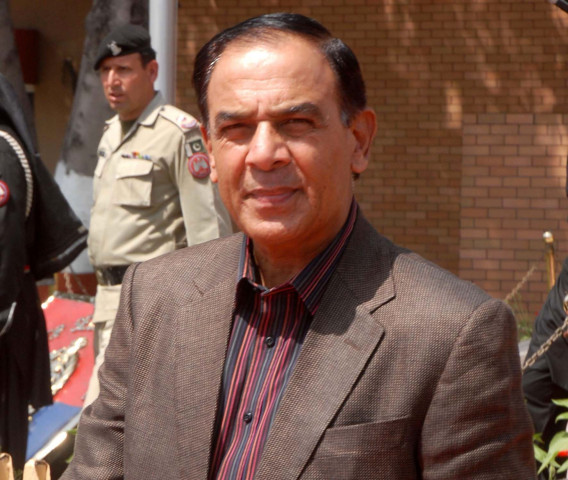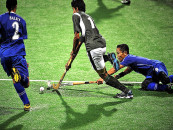NICL scandal: NAB deputy chief to seal fate of main suspects
Officials say NAB chief had transferred powers to his deputy four days before SC verdict.

NAB chief Qamar Zaman Chaudhry. PHOTO: FILE
Now that the National Accountability Bureau’s (NAB) chief has been declared a key suspect by the Supreme Court in the National Insurance Company Limited (NICL) scandal, his deputy bears responsibility for opening investigations against the main accused in the case, officials said on Saturday.
“Before going on leave, NAB chief Qamar Zaman Chaudhry delegated his powers to Deputy Chairman Saeed Ahmed Sangana,” a NAB official told The Express Tribune. The actual transfer of powers came on November 18, four days before the court announced its verdict in the NICL case, according to the official.
“The deputy chairman will now be able to authorise investigations against the NAB chief and all other suspects in the NICL case,” the official added.
Already, Sangana has called all senior bureau officials, as well as the prosecution wing, for a meeting on Monday to discuss the constitution of the investigations teams which will probe the suspects of the NICL case, NAB officials said.
They added the meeting would also decide the line of action in Qamar Zaman Chaudhry’s ‘special case’.

The Supreme Court, in its verdict on Friday, accused the NAB chairman of involvement in the illegal appointment of Ayyaz Khan Niazi as NICL chairman while serving as an additional secretary.
The NAB chief also went on indefinite leave on Friday, immediately after the top court ordered action against him and the other suspects in the NICL case.
According to NAB officials, Chaudhry wanted the probe against him to be ‘free of any influence’. This is why the NAB chief went on leave and delegated his powers to the deputy chairman, they said.
In addition to the NAB chief, the list of suspects in the NICL case comprises a who’s who of the country’s top bureaucrats, such as sitting Economic Affairs Division Secretary Nargis Sethi, Federal Tax Ombudsman Abdur Rauf Chaudhry and former prime minister’s principal secretary Khushnood Lashari. The list also includes Pakistan Peoples Party leader and former commerce minister Makhdoom Amin Fahim.
The Supreme Court, in its verdict, transferred all NICL case investigations to NAB and directed to the anti-graft body to take action against all suspects in accordance with the National Accountability Ordinance 1999.
However, under NAB rules and regulations, the bureau’s directors general can only authorise investigations against government officials belonging to grade 19 or lower. Only the NAB chairman can authorise investigations against officials in a higher cadre, politicians and other important personalities.
Meanwhile, NAB officials said the NICL probe teams will comprise experienced investigation officers, who will report directly to the deputy chairman. They added the deputy chief would look after all aspects of the case investigations personally as well.
All suspects, including the NAB chief, will be questioned and probed by the investigation teams to substantiate accusations against him, they said.
Published in The Express Tribune, November 24th, 2013.



















COMMENTS
Comments are moderated and generally will be posted if they are on-topic and not abusive.
For more information, please see our Comments FAQ